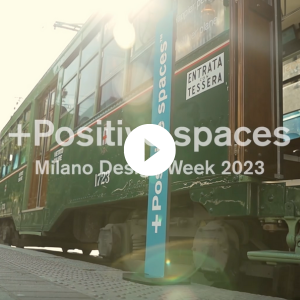ManagerZen organizes an experiential workshop on public speaking based on theatrical technics. Rimini February 9th, 10th , 2013.
http://www.managerzen.it/iscrizione-corso.html Tel 0541-736362
Interview to Gianluca Reggiani, President of Banyan Theatrical Association and coach-actor with ManagerZen
In 2007, a bit as a game, we thought of putting together the business know-how of ManagerZen with the professional know-how of the actor Gianluca Reggiani, President of the Banyan Theatrical Association who, in Rimini , founded and manages the Mulino di Amleto: the only alternative space for theatre expressions, with performances, installations, workshops, etc.
The in company- theatre was no longer brand new in Italy, and time was ripe to integrate the use of theatre techniques into management communication courses. Leading the way, of course, was public speaking, and, who could be better than an actor at attracting his audience’s attention?
Reggiani’s experience, as an actor and director, together with his background as coach in theatre workshops, was the perfect marriage to meet the needs of people who, at work, have to face rather large audiences.
The public speaking courses offer is actually wide, but, this special ensemble of competences has resulted in a format which, already validated in numerous courses, has been particularly effective. That is why we asked Gianluca to tell us something about the techniques he uses and his Public Speaking Course.
“The greatest fear people have is not to die, but to speak in public. [Richie Roberts- American Gangster].”
As you say in your courses, it seems this fear comes second only to death: why do you think having to deliver a speech in public is so scary?
Unconsciously, the fear to speak in public recalls an ancient hidden memory related to the risk of being rejected or expelled from the “pack” and, then, it is ,somehow, an experience that triggers a kind of “survival” instinct: we wish with all our heart to make a good impression so as to be accepted, welcome.
In simple words, we could say that, unfortunately, we’re still terrified by the fear of the judgements other people may pass about us. When we don’t give a damn about this potential negative judgement we begin to enjoy speaking in public.
On the one hand, people feel the need to get tools and skills to face an audience and, on the other hand, it is said that “technicism” could take away naturalness and spontaneity, and , consequently, effectiveness. What could you tell us about this?
Athletes, musicians and actors train for a long time and are very disciplined, not to mention the fact that they “warm up” carefully even some minutes before the competition or performance. This allows us to gain more and more awareness, and we avoid the mechanical repetition of any technique or trick which has been only memorized and not assimilated. “Techniques” are important but, in themselves, they don’t make for the quality of a speech and it’s a good thing to know them and then forget them during the performance. I believe it’s important to understand and learn how to recognize some principles which are the basis for public speech and with which it’s possible to work transmitting the sense of authenticity to your audience.
Are there any “tricks” to speak in public?
As you gain experience you acquire resources which can be useful, because they are yours. We look for “tricks” as if they were easy shortcuts to reach a goal but, in this way, most of the times we lose focus of the beautiful landscape. The most effective “trick” is that of being able to enjoy speaking in public, and, then, the effectiveness of our potential increases, and there’s no need to cheat.
We should ask participants, but, in your view, what makes your course more effective than others?
I think of myself, mainly, as a “theatre director”. I know very well how to work with actors and how to train actors. I propose a very practical approach with solid theoretical foundations. I invite and lead participants to a process of self-discovery as “actors” so that they can learn to play with a greater awareness of themselves and, hopefully, find the courage to “reinvent” the “character” we all play in our everyday lives to make it more effective on stage.
Is there a minimum level or is there a requisite of certain communication competence to take part in your workshops? Can somebody who is already a “communicator” benefit from them?
Everybody can take part. Once we have discussed and understood certain basic principles, specially as regards body language; my job is focussed on the individual because I try to give value to your subjective qualities – there’s no ideal standard model to reach as communicators-. You shouldn’t imitate anybody, you should “perform” better being aware of the “inner demons” which weaken you and helping the “angels” who support us.
At the end of the workshop, there’s always a great atmosphere and, in a day and a half there are often real “epiphanies”…
Our potential resources are remarkable and surprising. My job is to create the conditions for people to learn how to play and gain awareness at a level which is “beyond” their usual daily world. When we speak in front of an audience, we’re in a situation which is “beyond” our usual daily world and, because of this, we need to put into use , knowingly, plenty of energy. It’s normal, when we’re working in this direction with a bit of enthusiasm, that people may live true “epiphanies”, which are only the consequence of experimenting how strong and powerful the phrase “Yes, I can” may be.
In one of your professional profiles you’re defined as a “possible maker”. What does this mean to you?
This is a phrase I particularly like because it clearly reflects the level of responsibility that I want and am willing to take. I feel I cannot be an “instructor” because I don’t want to instruct people or form them. I can’t be defined, especially in these situations, as a “coach” or “trainer” because this job would take too much time. I can be defined as a “Possibility Maker”, a creator of possibilities. My responsibility is clear and total: that of creating the conditions to offer participants concrete possibilities of growth and development of their own potentials. But, then, there’s also the great responsibility of the people who take part of giving the best of themselves when playing and profiting from this opportunity. I could never go on stage in your place!
A phrase, or quote, to greet us and invite us to your course…
“All the world’s a stage and all the men and women merely players: they have their exits and their entrances; and one man in his time plays many parts…” William Shakespeare. There’s nothing to be afraid of in the discovery of the beauty of playing with one of the most extraordinary playmates that we have been given since we were born…ourselves.
















